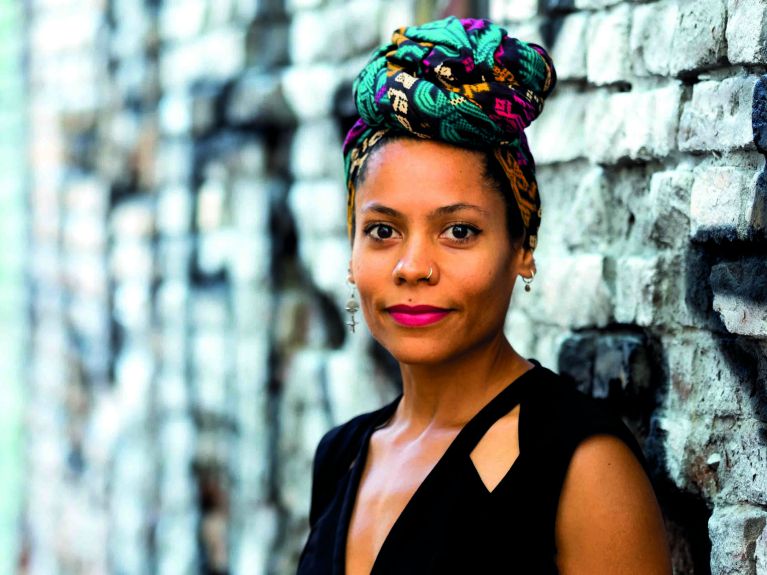“A Revolution of Love”
Emilia Roig is an expert on diversity, inclusion and anti-discrimination. She talks about what drives her campaigns.

“I’m a product of colonialism,” says Emilia Roig when talking about her origins. That’s something she has to do a lot ever since her first book, “Why We Matter. The End of Oppression” became a bestseller in 2021. More recently, her 2023 book “The End of Marriage.” has made her a queer black feminist icon for many people. What she is calling for is nothing less than “a revolution of love”.
Emilia Roig was born near Paris in 1983. Her parents (her mother was a nurse from Martinique and her father an Algerian doctor) had met in French Guyana. The couple emigrated to France. As the child of a black mother and a white father, Roig developed a keen awareness of power relations.
Founding the Center for Intersectional Justice in Berlin
Roig went to university in Berlin and then completed her PhD in intersectionality at Humboldt University and the University of Lyon. The political scientist recognised that “oppression isn’t individual but structural.” For Roig, breaking down these structures becomes a mission. In 2017 she founded the Center for Intersectional Justice in Berlin. The centre is a thinktank which studies and advises on diversity, equality, inclusion and anti-discrimination.
Dieses YouTube-Video kann in einem neuen Tab abgespielt werden
YouTube öffnenThird party content
We use YouTube to embed content that may collect data about your activity. Please review the details and accept the service to see this content.
Open consent form“The patriarchy is the most widely underestimated system of oppression,” says Roig with reference to her most recent book, in which she calls for a rejection of marriage. Roig is mother to a son and was previously married herself. At that time, she says, she was following the romantic script which women have internalised: marry, have kids, be happy. But Roig wasn’t happy. Her marriage broke down.
Caring is the work of love
In Roig’s view, there is a system to this unhappiness, and marriage continues to cement inequalities even today. While women spend an average of over 50% more time each day on housekeeping and children than their male partners – and earn up to 18% less per hour – their husbands out there in the world accumulate money and hold positions of power. Reforms won’t do anything, she says. The institution must be abolished.
What happens then? Roig’s demands are that care work should be remunerated through a feminist tax. She wants to see childcare expanded. And above all, Learning to appreciate caring, as it is “the work of love”.



